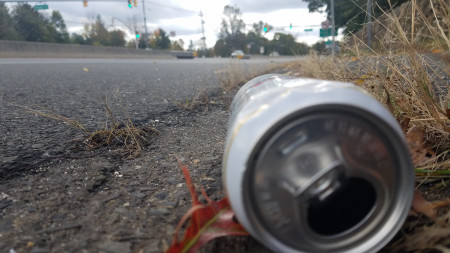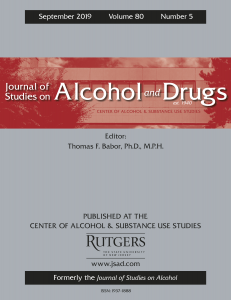Army National Guard Soldiers, Especially Those Deployed and Exposed to Combat, Are at Risk for Alcohol Misuse After Military Deployment

PISCATAWAY, N.J., March 9, 2022 (Newswire.com) - Using alcohol to cope with negative emotions after military deployment is known to be common among active-duty servicemembers. But a new study in the Journal of Studies on Alcohol and Drugs suggests that Army Guard soldiers who return home after deployment may face similar risks.
Further, the situation might be more troublesome for Guard soldiers who were exposed to combat.
"Combat events, such as having engaged in direct combat and experienced combat trauma, may precipitate a great deal of personal discomfort ('moral injury'), necessitating some form of self-soothing, such as excessive alcohol use," says study author James Griffith, Ph.D., a faculty member and research fellow at the University of Utah's National Center for Veterans Studies.
In his research, Griffith looked at survey responses from Army National Guard soldiers who had recently returned from Operation Iraqi Freedom in 2010.
Griffith used data from more than 4,500 Army National Guard soldiers who responded to the U.S. Army's Reintegration Unit Risk Inventory. The anonymous survey includes 80 questions about alcohol and drug use, as well as other aspects of the soldiers' lives such as criminal behavior, interpersonal relationships, social support and psychological distress symptoms.
He compared their responses to those of Guard soldiers serving their traditional part-time military role, as well as to previous research on deployed Army Guard and active-duty military personnel.
Overall, recently deployed and returned Army Guard soldiers had higher rates of heavy drinking than nondeployed Army Guard soldiers serving in a traditional, garrison role (29.9% vs. 24.1% for heavy drinking, and 33.9% vs. 31.8% for binge drinking, respectively). The rate of drinking among deployed Guard soldiers also exceeded that for deployed military personnel in several past studies.
The most impactful factor was exposure to combat during deployment, which was associated with greater alcohol use.
Griffith says that the nature of the reserve military service may help contribute to its members being at higher risk for alcohol use. Most of the time, Army Guard personnel serve one weekend a month and 15 annual active-duty training days, as do most reservists. When called up, they serve full-time for a period of about one year. And in the recent Iraq and Afghanistan wars, Army Guard and Army Reserve personnel constituted about 30% to 40% of the U.S. forces.
"On their return, Guard personnel resume their part-time military service and civilian life and employment," he says. "Unlike active-duty military personnel, Guard personnel typically do not live near military installations to receive behavioral health care. And many are not eligible for military health care unless conditions are directly related to active-duty military service."
Griffith says more needs to be done to help recently returning, deployed Army Guard soldiers, such as more thoroughly assessing alcohol risk.
Media contact:
James Griffith
Jhgriffith@comcast.net
Source: Journal of Studies on Alcohol and Drugs
